Women of the Dark Streets Read online
Page 15
She savored the tongue dancing with hers, licked at the throbbing pulse point, nipped and sucked at the hard, puckered nipples. She slid lower to nuzzle into the familiar scent and dine on the swollen flesh she had surely tasted many times before. She held tightly to the narrow hips bucking under her attack. When the rock-hard thighs tensed and trembled with release, she drank of her.
At last, her fast was over.
Her heart was so full, so full of joy that it hurt. She sobbed against the lean belly under her cheek. She rolled on her back and Dani’s long body, so soft, covered hers.
“Eden, my Eden. So beautiful. I have missed you more than words can describe.”
Mouth and hands, sure and knowing, touched her in all the places that made her shudder and gasp. The sweet spot below her ear, the crest of her shoulder, the swell of her breast. Blunt nails scraped across her sensitive buttocks, teasing fingers danced along the inside of her thighs to cup her, then slide through her wetness.
“Please. I need you,” she moaned. “I need you inside.”
And she was filled, tight and deep. She whimpered as the fingers withdrew and filled her again. She tried to hold on to the sweet pleasure, rising to each thrust, opening to welcome the light that had been missing in her life, this lifetime. But it was too much to contain. She let go, knowing it would be hers again and again, and a burst of pleasure infused, penetrated her body soul deep.
“Dani, Dani. Muka dehee’ya. My Asima.” She sobbed the names like a prayer.
Dani’s blue eyes glistened with tears now. “When we began, you were my Philippis, lover of horses.” Her fingers were gentle against Eden’s cheek.
“And you were my Melanippe, the black mare.”
It was clear, so clear to her now.
How could she have not recognized her on the prairie? How could she have not seen it when they met in the restaurant?
“We’ve spent many lifetimes together, Johara, my jewel, Nea kwee, my wife. Each time it seems an eternity until we find each other again.”
“Have you been lonely, love? It seems cruel that one of us is always born knowing and must wait for the other.”
“Yes, but it makes our reunion all the more joyful.”
They held each other close, stroking and gentling away the years apart, until they at last felt assured their reuniting was real.
Eden chuckled. “I guess I need to find a new occupation.”
“Not necessarily. Knowing now can make it even easier to spot the pretenders. But we can talk about that later.”
Dani settled onto her back and Eden curled against her side, her cheek against Dani’s breast, her ear against the comforting thud of her heart. She smiled, anticipating the invitation they both knew would complete their reunion.
“Will you walk with me now?”
“Always. Forever.”
They closed their eyes and found their familiars on the prairie…a black mare with sky blue eyes and a shimmering chestnut of sun-kissed gold.
Then they were running, wild and free across the prairie, manes and tails whipping like banners. They were two hearts unfettered by time, death, or human skin.
Always. Forever.
Forget Me Not
Rebecca S. Buck
Ada Faithful staggered slightly on the uneven cobbles. It could have been a result of losing her footing on the smooth stones, or it could have been the copious amount of rough gin she’d taken. Her skirts dragged through a puddle, growing heavy. Inches of water, mud, and God knew what already soaked up from the hem of the dark green silk.
Now night had fallen, the sky a heavy, starless blue; the moonlight only thin, washed-out illumination. Ada was growing cold. She’d left the house without bonnet or shawl, not knowing where she intended to go, but knowing she had to get out into the air where she could breathe. She’d wandered aimlessly, keeping to the shadows, spurning enquiries as to her well-being, and trying to keep the tears from flowing. Her throat ached with the repressed sobs.
She’d wandered around the huge rock on which perched the castle, attempting not to think, just wanting to get away. But there were too many people, drinking at the inns around its base, so she turned towards the river. She’d only been on foot in this part of the city once or twice, and certainly never alone. Oblivious to the nature of the area into which she strayed, she hadn’t noticed the eyes watching her from alleys, had barely noted the stench of rotten humanity filling the air. The houses began to huddle and squat close to each other, leaning as if in conspiracy to trap their residents in their poverty-stricken embrace. She didn’t notice where she was until it grew suddenly darker. There were no gas lamps, only the vague flickering of lantern light from some of the windows.
Out of the shadows, a creature approached her. Staggering, eyes dark hollows in the night, the shape of a wide mouth just discernable.
“You’re in my patch, love,” came the voice, rough and ageless, but definitely female.
“I beg your pardon?” Ada blinked, shaken momentarily out of her stupor of confusion and distress.
The woman, who was taller than Ada, stepped towards her. Ada realised she should be intimidated, and though her heart beat a little faster, was surprised just how numb she felt. “I do business here, little Missy. Sling y’ hook.”
Realisation dawned on Ada and she drew her breath in sharply with the knowledge. “No, I’m not…I mean, you’re mistaken.”
“I don’t care what you are or aren’t. I won’t have you ’ere taking my business. Sod off.” The woman’s breath was in her face, laced with alcohol.
“Gin,” Ada said.
“What? You’re not one of them temperance woman, are you?”
“No. Do you have any?” Ada felt reckless. If this woman could haunt the streets by night, lost in the shadows, why not lose herself and her troubles in a similar oblivion?
“What’s it to you?”
“I’ll buy it.” Ada suddenly remembered she had no money. She thought quickly, then her hand went to her left wrist. “With this.” Before the other woman’s eyes, she held a diamond and ruby bracelet. She’d only been wearing it two days, a gift from her fiancé. It felt heavy, binding, and she hated the sanguine rubies.
The woman squinted, as if she did not completely believe what she was seeing in the darkness. Then she reached up a stubby-fingered hand and grasped it. Ada did not let go.
“My gin?”
“Pleasure, missy.” The woman handed over a glass bottle. It was cold, and still over half-full, judging from the weight. Ada released the bracelet. The woman turned and hurried away, as if her luck might run out if she lingered for any longer.
Ada uncorked the bottle and lifted it to her lips tentatively. The sharp odour of the gin stung her nostrils, and she almost cast it aside. But she wanted to be numb. Not to think. If the whore could block out the misery of her life, why could it not work for Miss Ada Faithful? Gin need not be the comfort of the poor alone, surely? She tilted the bottle and let the gin pour into her mouth. It was bitter and strong. She swallowed and it was like trying to take down broken glass, with the taste of turpentine. But the fire warmed her chest and belly. The sheer recklessness comforted her. This was breaking the rules. She smiled and took another, longer, drink.
A little unsteady already, Ada looked about her, trying to establish in which part of the town she had found herself. To her left, the city climbed a slope, to spread along the top of the sandstone escarpment. She could make out the straight lines of the lace factory rooftops, the chimneys of the gaol and Shire Hall. Beyond that, she knew, were the respectable merchants’ houses, the gas-lit streets. She did not want to return home, but it was an altogether safer place to be than the edges of the Narrow Marsh slums, where she now knew herself to be.
Ahead of her, a flight of steps led upwards. Though they were entirely in darkness, she walked towards them, determined to climb out of the stinking slums. Maybe, in a more respectable part of the city, she could find a doorway in which to seek shelter for
a while.
The stone stairs were steep and worn uneven. Ada’s footsteps sounded loud, echoing from the buildings crowding on either side of her. The gin sloshed in the bottle she carried in her left hand, and occasionally the glass clinked when she caught the brickwork at the side of the steps. The only other sounds were more distant. A whir and a clatter from the factories, where the machines never slumbered; a dog barking and a shout in the night from the slums below. She was about halfway up when she heard another sound, closer. A rhythm of footsteps in time with her own. Ada paused, listening hard. Nothing. Perhaps the gin was fooling her senses already.
She began climbing the stairs again, heart pounding with the exertion and desire to get out of the shadowy passageway and onto the wider, lit street above. She detected the footsteps behind her again and began to panic, sure now that she was being followed by some lowlife from the slums, convinced such a man could only intend to ravish her and slit her throat. She climbed faster, breathing hard.
Finally, she emerged onto the cobbles of the street above, the wide and respectable High Pavement, home to several fine dwellings as well as important public buildings. But still, her logic blurred by the gin, she ran. Her muddy skirts flapped heavily around her ankles as her eyes darted around for a place to hide from whoever was following her. To her left, high above the pale illumination of the gas-lit street, loomed St. Mary’s church, a medieval edifice, its tower the highest point in the city over which it had watched silently for centuries. A few steps under a wrought iron archway led into the dark churchyard. Ada glanced behind her quickly and, seeing no one watching her, fled up the steps.
She followed the flagstones to the back of the church, where it was remarkably close to the warehouse buildings just beyond the churchyard. A tall, pointed headstone, pale white in the limited light, drew her attention. Without another thought, she threw herself to the damp grass behind it, screening herself from the path and from anyone on the street beyond.
A few deep breaths steadied her slightly, but her hands were still shaking. She uncorked the gin once more and took a long drink, suppressing a cough as it tore at her throat. As the alcohol hit her stomach, she began to feel calmer. Perhaps she’d been mistaken. There didn’t seem to be anyone following her now. Or maybe it had merely been someone innocent making their way up the steps behind her. It need not be anything sinister. She peered out from behind the headstone. A dark shadow moved in the street. Ada held her breath. But the shadow moved on, without seeming to acknowledge the existence of the church at all. There was no evidence whoever it was had been following her.
Drawing an unsteady breath, Ada sank back to the ground, her back against the marble headstone.
“You’re like me.”
Ada jumped, startled to hear a voice so close. A female voice, remarkably clear in tone. She swallowed hard and wondered if it was the gin, tricking her. Glancing around, she saw no one.
“You’re like me.”
The same words again, an identical echo. Ada turned to her left this time, and the mystery was solved. There was a girl with her in the churchyard. Though it was dark, Ada had the impression of youth. The girl wore a pale-coloured dress, and her skin was nearly as pale. Unlike Ada, she had remembered her head wear, and wore a simple pale-coloured cap. She was not finely dressed, but nor was she in rags. Ada took all of this in, while doubting her own eyes. Could gin cause hallucinations? Why would there be a girl in the churchyard?
“I’m Christabel Jessop. You’re like me.”
“What on earth are you talking about?” Ada was pleased her words sounded to come out of her mouth coherently. It felt like more of an effort than it should have done.
“You needn’t be rude. We’re alike. What’s your name?”
“Ada Faithful.” A moment later, Ada wondered why she had revealed her name. “Why are you in a churchyard?”
“Why are you?”
“I asked you first.” Ada’s eyes were growing accustomed to the level of light in the churchyard. The girl was pretty. Even through the haze of the gin, Ada couldn’t help be a little intrigued. It was oddly comforting not to be alone in her misery.
“I’m hiding.”
“What from?”
“The same as you.”
“In that case, have some gin.” Ada offered the bottle, but Christabel refused it.
“I never touch it.”
“Me either.” Ada shrugged, and feeling a little pathetic, took another, shorter drink. She placed the bottle on the damp grass beside her. As she waited for the burning in her throat to calm, she looked at the girl. She had a vague perception that the gin was rendering this whole encounter less bizarre than it really was. “So how am I like you?” she said, hearing the challenge in her words.
“You’ve given your heart to a woman.”
Ada drew in her breath sharply, the fog in her mind clearing quickly. Her heart pounded, and she felt almost fearful. She wasn’t sure if she was more afraid that this strange girl knew her truth, or that there was such a truth to be known and spoken of. She had never spoken of it, barely acknowledged it before now.
“How…how…why…how…?” was all she could manage in response.
“I know. You’re like me.”
“You mean you have given your heart…well…”
“Yes. Lillian Fields. She’s fair, tall, and so alive. So very much alive.”
Ada felt wistful suddenly, hearing the love and desire in Christabel’s clear tone. She sighed and felt keen eyes regarding her face.
“Her name? What’s her name? The girl you love?”
Ada looked away, up at the square tower of the church, a tall shadow against the night sky. “Maud. Maud Hutton. She’s the daughter of my father’s business partner.” Maud was beautiful. Her hair was raven and fell in long waves when loosed from its usual tight braids. Her face was strikingly angular, but graceful with it. And she was the most articulate woman Ada had ever encountered. She’d been enthralled on their first meeting and sure she was, unaccountably, in love by the end of their second. The greatest surprise of all had been when she had begun to recognise that Maud returned those secret feelings.
But Ada was engaged to Jim Collett, a man her parents approved of, and whom she did not hate but yet could not love. She’d agreed to marry him mostly out of pity, she thought, for he was a rather shy, awkward young man, who would smile rather than speak, and always seemed in fear he would let everyone else down. Besides, she was not sure if her love for Maud was even real love. How could it be? And yet, once she had given her consent to the marriage, she felt as though she had begun to drown, slowly, slipping further under the surface every day. Finally, tonight, her need to breathe had caused her to run from the house, just as dinner was about to be served. Maud was to be present at the dinner. To sit opposite her, to exchange glances that said more than impotent words, to be so close to her, and yet only have a heart full of questions and doubts, a knowledge of the impossibility of it all, was too much to bear. Just to see Maud in the soft candlelight of the dining room caused a pain in all of her body she seemed incapable of soothing.
“Is she beautiful?”
Ada was recalled to her present situation, in the cold churchyard with the strange girl by her side. “Yes…” she began dreamily, tempted to launch into a description of Maud. Then she stopped herself. This was too preposterous, even with half a bottle of gin in her belly. “But why do you care, and why am I telling you? Why are you even in this churchyard in the middle of the night?”
“I have more reason than you to be here.”
“How’s that then?”
“Would you like to hear a story?”
Ada was suspicious for a moment, of such an odd question. But the gin and her lack of desire to return home were enough to produce an affirmative response.
“Yes. I’m intrigued,” she acknowledged.
“Oh good!” Christabel’s excitement was almost childlike. She hunched across the grass to move clos
er to Ada, their skirts brushing. To Ada’s surprise, Christabel took her hand between both of her own. Christabel must have been in the churchyard a long time, for her skin was very cool to the touch. Ada let her hand rest where Christabel grasped it lightly, the strangeness of the night making her more permissive than she would otherwise have been.
“There was once a young girl. They said she was pretty and would marry well, though she wasn’t especially rich. A lace merchant’s daughter was she. But she didn’t wish to marry, and they began, eventually, to think her rather queer.
“There was another girl, a little older. Very tall, and with fair hair, but handsome more than pretty. She was a milliner, a very fine one at that. Her fingers were nimble and she had an eye for what suited every face. She made, for the lace merchant’s daughter, the most beautiful bonnet she had ever seen. It was trimmed with lace and the most graceful feathers.”
Christabel paused and sighed. She turned and appeared to be inspecting Ada’s appearance. She moved one hand from Ada’s and reached up to her face, running a cool fingertip lightly from her temple to her chin. Compelled by something in that touch, Ada allowed it, despite herself, and found she missed it when Christabel drew her hand away. “Beautiful it was. It would have suited you.”
“Was it your bonnet?” Ada asked, beginning to see where the story was leading. Christabel placed a gentle but commanding finger onto Ada’s lips. It tickled, pleasantly. “Hush, and I will tell you.” Ada obeyed, as Christabel took her hand between her own again. This time her soft touch was welcome, and Ada was glad of it as she waited for the story to go on.
“The lace merchant’s daughter loved her bonnet. But before long, she loved the milliner more. The whole world seemed to make sense to her then. And it barely seemed a surprise that the milliner loved her back.”
Christabel leaned closer to Ada, who found her heart beat faster. She could feel Christabel’s breath on her cheek. It sent a shiver through her whole body, made her skin prickle. “The love, between two women, it is a wonderful thing,” Christabel said, her words charged with passion, though still soft. “But then you know that, do you not?” Her hand stroked over Ada’s face again, turning her so they were looking into each other’s eyes, but still not quite seeing, in the darkness. Ada knew she should move away and could no longer blame the gin for her reluctance to do so. So long now she had wanted this close proximity with a woman, to feel those soft lips against hers. Christabel was not Maud, but Ada had not kissed Maud, only imagined how it could feel. She could smell Maud, that trace of violet she always wore, and, closing her eyes, see those blue eyes looking into her own. She kept her eyes closed, and her lips tingled with a desire that seemed to be growing into an insatiable craving, as Christabel’s own lips promised to brush hers, as she continued to speak, in what was now a throaty whisper.

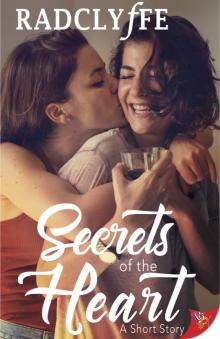 Secrets of the Heart
Secrets of the Heart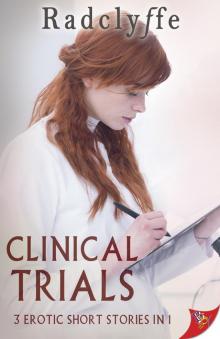 Clinical Trials
Clinical Trials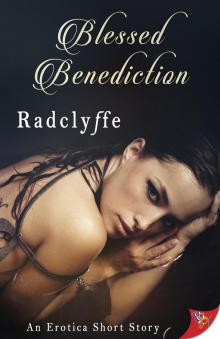 Blessed Benediction
Blessed Benediction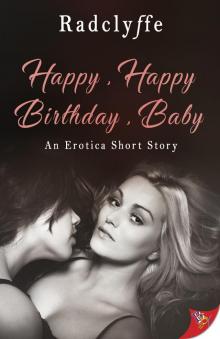 Happy, Happy Birthday, Baby
Happy, Happy Birthday, Baby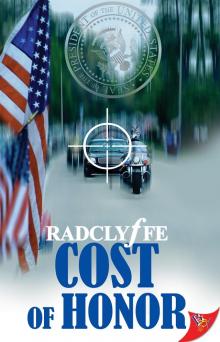 Cost of Honor
Cost of Honor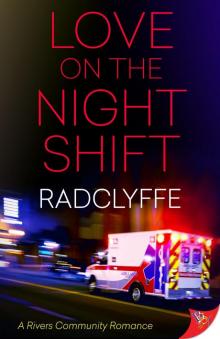 Love on the Night Shift
Love on the Night Shift Top of the Class & Bonus Night
Top of the Class & Bonus Night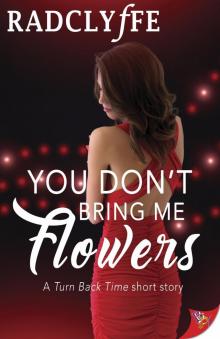 You Don’t Bring Me Flowers
You Don’t Bring Me Flowers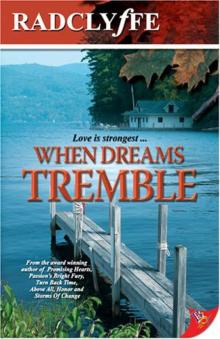 When Dreams Tremble
When Dreams Tremble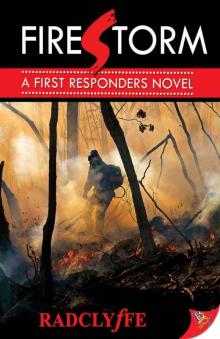 Firestorm
Firestorm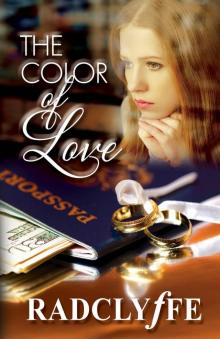 The Color of Love
The Color of Love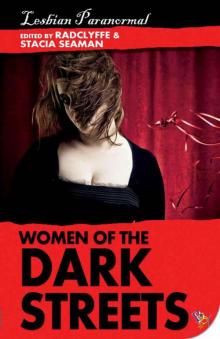 Women of the Dark Streets
Women of the Dark Streets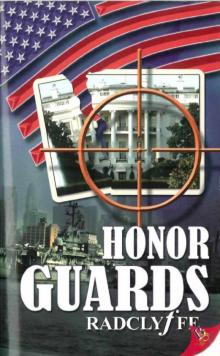 Radclyffe - (Honor 4) - Honor Guards
Radclyffe - (Honor 4) - Honor Guards Honor 03 - Love And Honor
Honor 03 - Love And Honor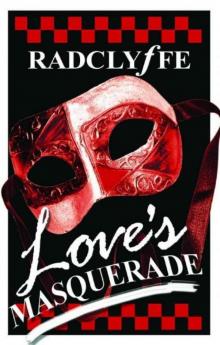 Love's Masquerade
Love's Masquerade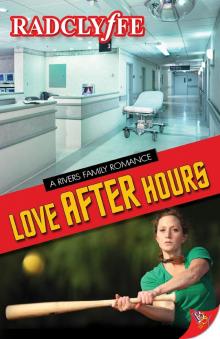 Love After Hours
Love After Hours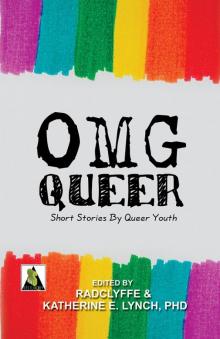 OMGQueer
OMGQueer A Matter of Trust
A Matter of Trust Honor Under Siege
Honor Under Siege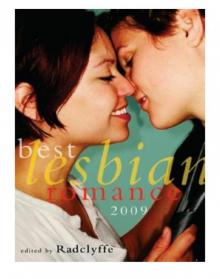 Best Lesbian Romance 2009
Best Lesbian Romance 2009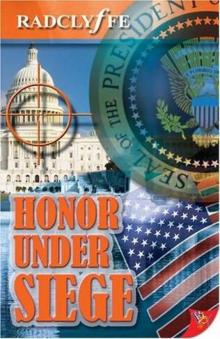 Honor 06 - Honor Under Siege
Honor 06 - Honor Under Siege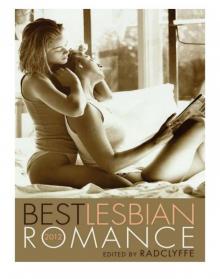 Best Lesbian Romance 2012
Best Lesbian Romance 2012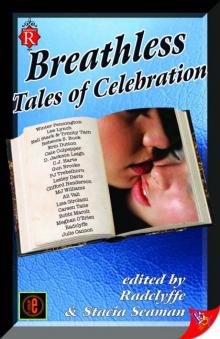 Breathless
Breathless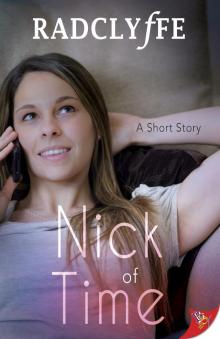 Nick of Time
Nick of Time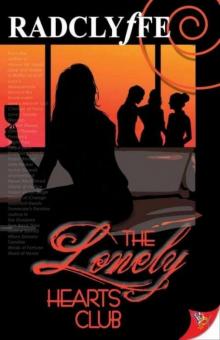 The Lonely Hearts Club
The Lonely Hearts Club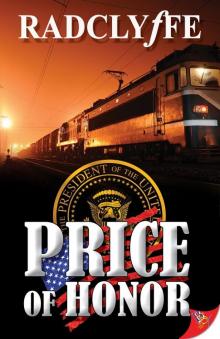 Price of Honor
Price of Honor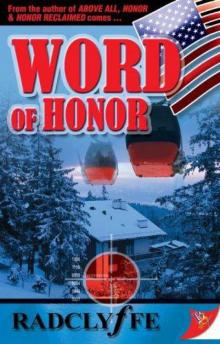 Word of Honor fr-7
Word of Honor fr-7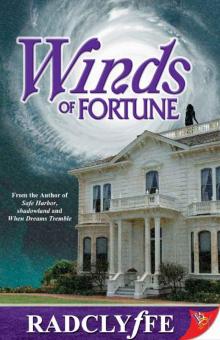 Winds of Fortune (Provincetown Tales Book 5)
Winds of Fortune (Provincetown Tales Book 5)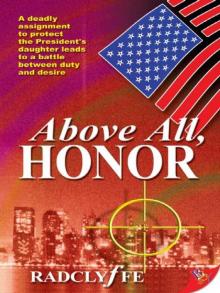 Above All, Honor
Above All, Honor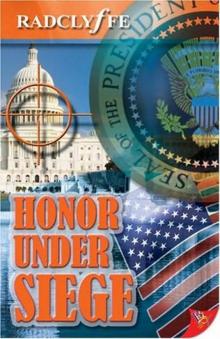 Radclyffe - Honor 06 - Honor Under Siege
Radclyffe - Honor 06 - Honor Under Siege Distant Shores, Silent Thunder
Distant Shores, Silent Thunder Word of Honor
Word of Honor Word Play
Word Play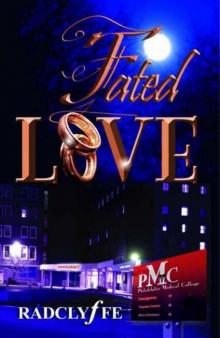 Fated Love
Fated Love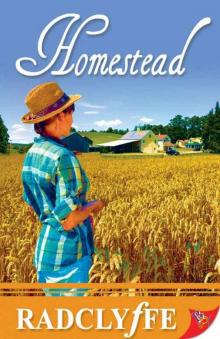 Homestead
Homestead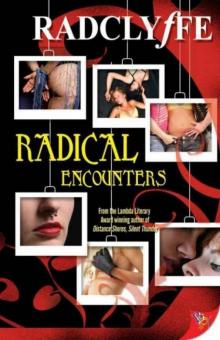 Radical Encounters
Radical Encounters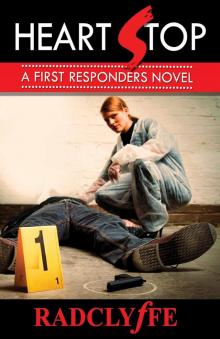 Heart Stop
Heart Stop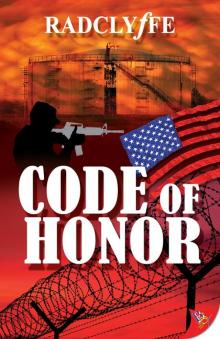 Code of Honor
Code of Honor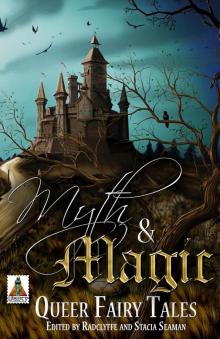 Myth and Magic
Myth and Magic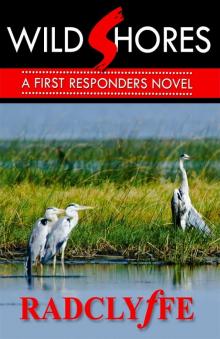 Wild Shores
Wild Shores Oath of Honor
Oath of Honor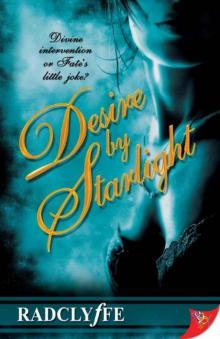 Desire by Starlight
Desire by Starlight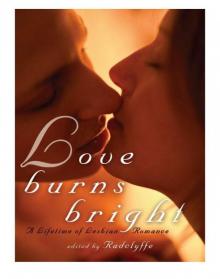 Love Burns Bright
Love Burns Bright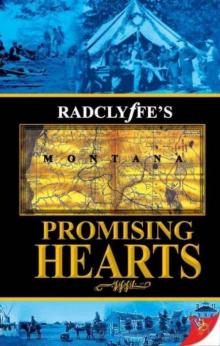 Promising Hearts
Promising Hearts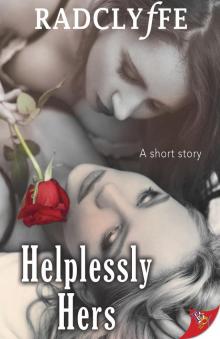 Helplessly Hers
Helplessly Hers Love & Honor h-3
Love & Honor h-3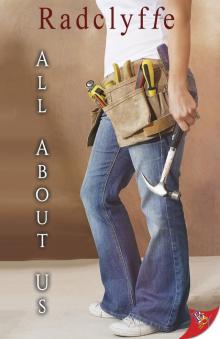 All About Us
All About Us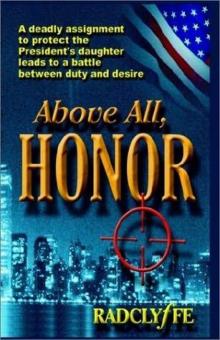 Honor 01 - Above All Honor
Honor 01 - Above All Honor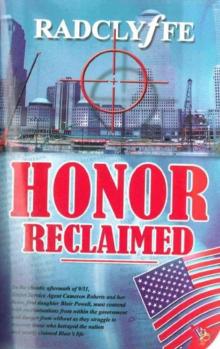 Honor 05 - Honor Reclaimed
Honor 05 - Honor Reclaimed Innocent Hearts
Innocent Hearts Taking Fire
Taking Fire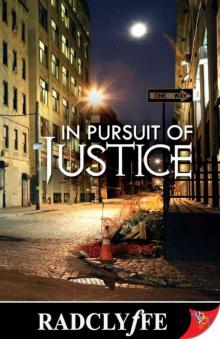 In Pursuit of Justice
In Pursuit of Justice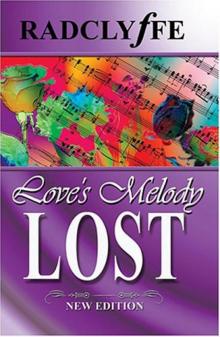 Love's Melody Lost
Love's Melody Lost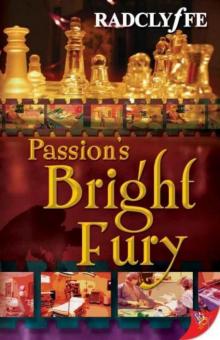 Passion's Bright Fury
Passion's Bright Fury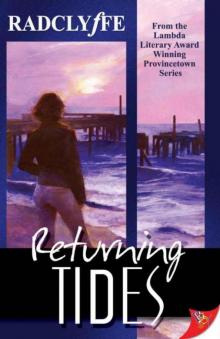 Returning Tides
Returning Tides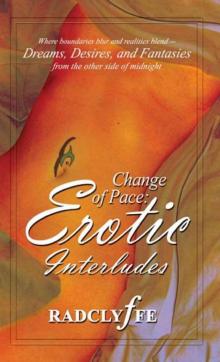 Change of Pace
Change of Pace Safe Harbor
Safe Harbor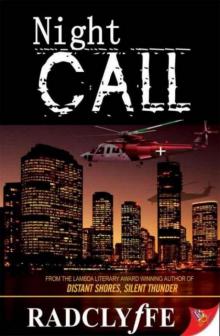 Night Call
Night Call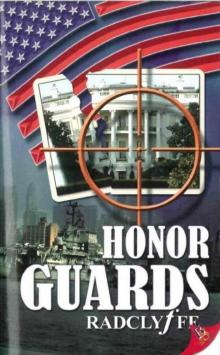 Honor 04 - Honor Guards
Honor 04 - Honor Guards Honor Bound
Honor Bound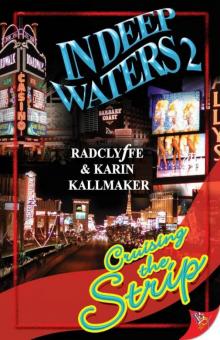 Cruising the Strip
Cruising the Strip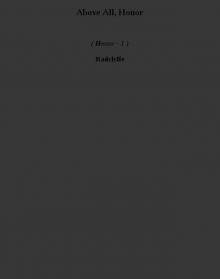 Above All, Honor h-1
Above All, Honor h-1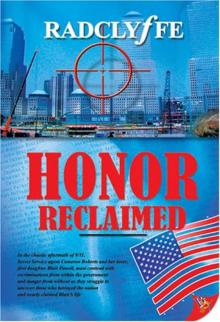 Honor Reclaimed
Honor Reclaimed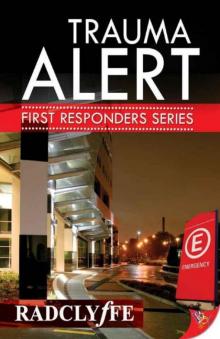 Trauma Alert
Trauma Alert Love On Call
Love On Call Best Lesbian Romance 2014
Best Lesbian Romance 2014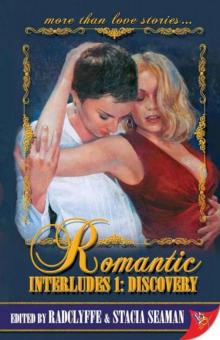 Discovery
Discovery shadowland
shadowland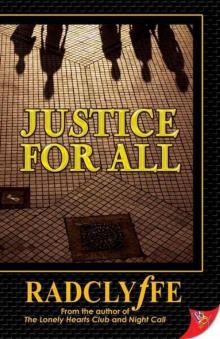 Justice for All
Justice for All Best Lesbian Romance 2011
Best Lesbian Romance 2011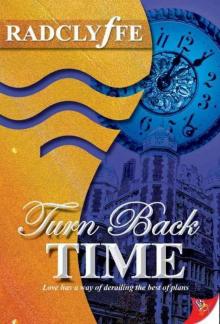 Turn Back Time
Turn Back Time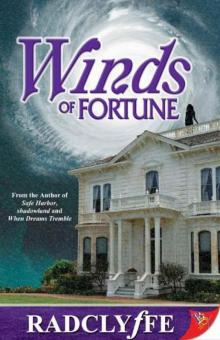 Winds of Fortune
Winds of Fortune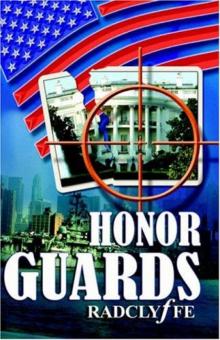 Honor Guards
Honor Guards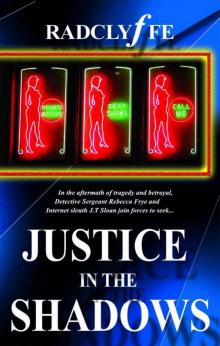 Justice in the Shadows
Justice in the Shadows Love's Tender Warriors
Love's Tender Warriors Dangerous Waters
Dangerous Waters First Sight
First Sight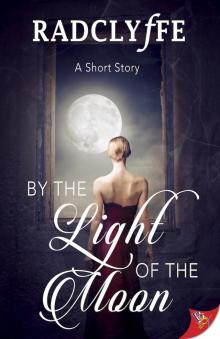 By the Light of the Moon
By the Light of the Moon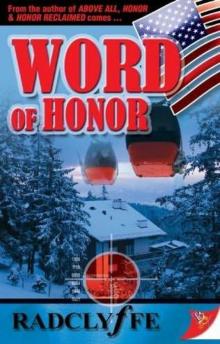 Honor 07 - Word Of Honor
Honor 07 - Word Of Honor Tomorrow's Promise
Tomorrow's Promise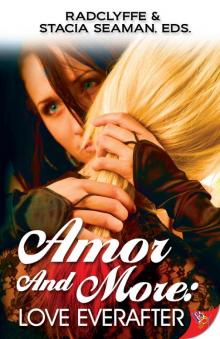 Amor and More
Amor and More Best Lesbian Romance 2010
Best Lesbian Romance 2010 Sheltering Dunes (Provincetown Tales Book 7)
Sheltering Dunes (Provincetown Tales Book 7) Love And Honor
Love And Honor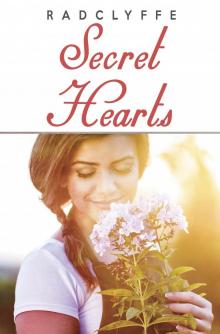 Secret Hearts
Secret Hearts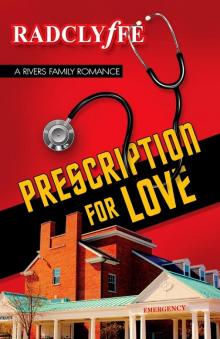 Prescription for Love
Prescription for Love Passionate Rivals
Passionate Rivals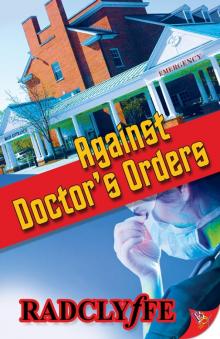 Against Doctor's Orders
Against Doctor's Orders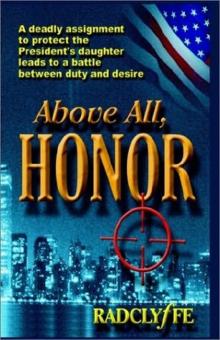 Radclyffe - Honor 01 - Above All, Honor
Radclyffe - Honor 01 - Above All, Honor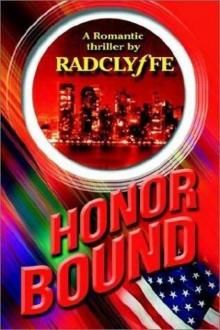 Honor 02 - Honor Bound
Honor 02 - Honor Bound Beyond the Breakwater
Beyond the Breakwater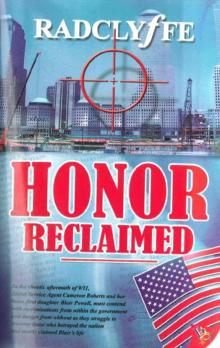 Radclyffe - (Honor 5) - Honor Reclaimed
Radclyffe - (Honor 5) - Honor Reclaimed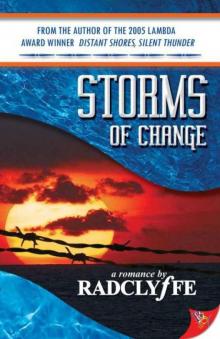 Storms of Change
Storms of Change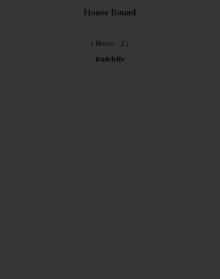 Honor Bound h-2
Honor Bound h-2 Justice Served
Justice Served Sheltering Dunes
Sheltering Dunes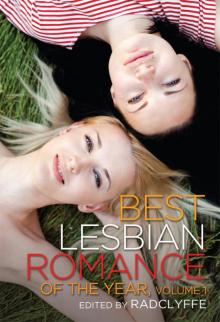 Best Lesbian Romance of the Year
Best Lesbian Romance of the Year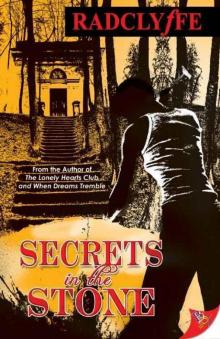 Secrets in the Stone
Secrets in the Stone